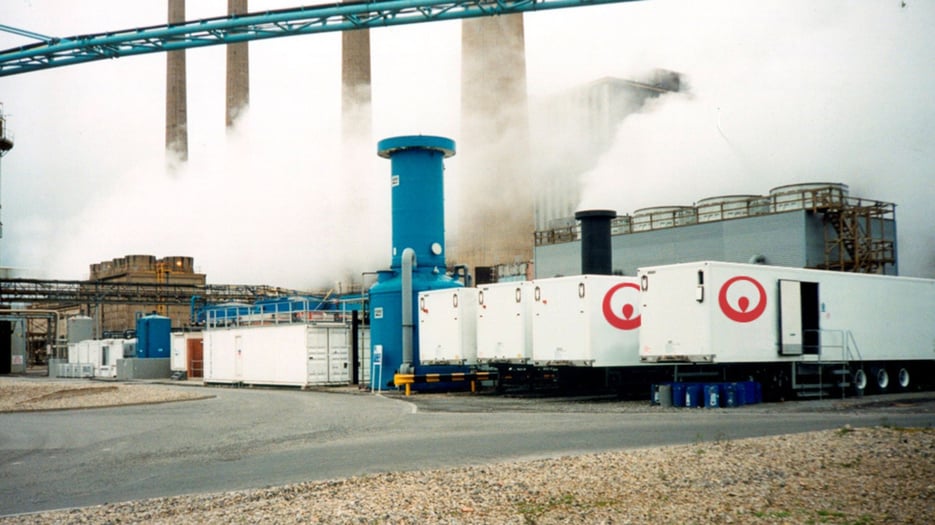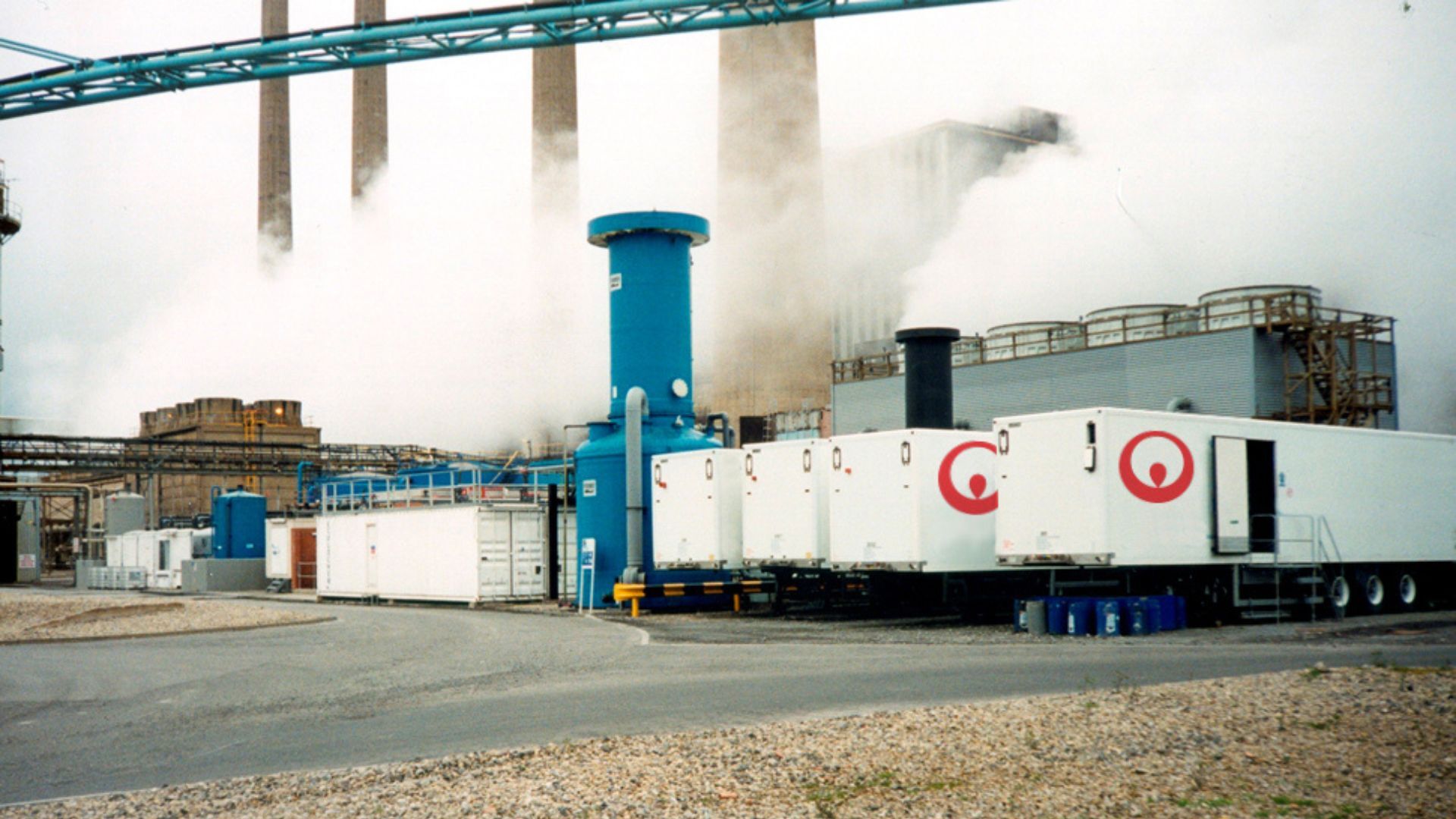This article evaluates the key differences between two flagship mobile water treatment technologies, helping engineers and managers to make a more informed decision in heavy industry businesses.
Heavy industry businesses across Europe face highly unpredictable and volatile operating environments, which present unprecedented challenges for engineers and managers responsible for continuity of water treatment operations. With soaring energy costs, increasingly stringent environmental regulations, and the pressing need to reduce carbon footprints, companies are re-evaluating their water treatment strategies. The EU's Green Deal and Industrial Emissions Directive have set ambitious targets for industrial water consumption and waste reduction, pushing businesses to seek more efficient and sustainable solutions.
Mobile water treatment systems have become increasingly crucial for industries ranging from power generation and chemical manufacturing to food and beverage and electronics manufacturing. Whether supporting planned maintenance, responding to emergency situations, or supplementing existing water treatment capacity, these mobile units provide essential flexibility. However, the choice between traditional demineralisation (DI) systems and modern reverse osmosis (RO) solutions has become a critical decision point for many operations managers.
 Image: Mobile water services supporting business continuity during critical plant upgrades at an industrial site.
Image: Mobile water services supporting business continuity during critical plant upgrades at an industrial site.Striving for operational efficiency
The current economic climate in Europe, characterised by high operational costs and skills shortages, has intensified the focus on operational efficiency. Traditional ion exchange-based mobile water systems, while reliable and familiar, often require significant chemical usage and manual intervention. This becomes particularly challenging as experienced operators become scarcer and chemical costs continue to rise. Meanwhile, RO technology has matured significantly, offering automated operation and reduced chemical dependency, though with its own set of considerations.
In this analysis, we'll explore how these technologies align with current industrial challenges and regulatory requirements, examining both financial and operational perspectives while acknowledging that different scenarios may call for different solutions.
Proven Advantages of Traditional Ion Exchange (IX) Demineralisation Systems
When it comes to industrial water treatment, traditional resin-based ion exchange systems have earned their reputation through decades of reliable service. Let's explore why many facilities still consider demin systems their go-to solution for mobile water treatment.
Unmatched reliability in diverse conditions
Demineralisation systems have demonstrated exceptional reliability across various industrial applications. With decades of implementation in critical industries such as power generation, petrochemical, and other heavy industry manufacturing, these systems have consistently delivered high-quality treated water. Their robust design and straightforward operation make them particularly valuable in challenging industrial environments where reliability is of key importance.
Time-tested technology with proven results
The ion exchange technology underlying demin systems has been extensively refined and optimised over many decades. This maturity translates to predictable performance and well-documented operational parameters. Plant operators and maintenance teams benefit from vast industry experience and established troubleshooting protocols, reducing the risk of unexpected system failures.
Cost-effective initial investment
When comparing mobile water treatment options, traditional ion exchange systems typically require lower upfront capital investment compared to RO systems. The basic infrastructure needed for IX systems is generally simpler and less expensive, making them an attractive option for businesses with budget constraints or those requiring temporary solutions.
Operator familiarity and training advantages
Most industrial facilities already have staff familiar with ion exchange technology, making the adoption of mobile demin systems seamless. This existing knowledge base reduces training requirements and minimises the risk of operational errors. Plant operators can typically transition to managing mobile demin units with minimal additional training, leading to faster deployment and reduced operational risks.
Streamlined maintenance and troubleshooting
The straightforward design of demin systems facilitates easier problem identification and resolution. Key indicators like breakthrough and exhaustion points are well-understood, and most issues can be resolved through established procedures. Maintenance requirements are straightforward, involving primarily resin regeneration and basic mechanical upkeep. This simplicity is especially valuable during emergency situations or when expert technical support isn't immediately available.
%20v2-02.png?width=4115&height=2077&name=77145%20-%20Veolia%20Mobile%20Water%20Services%20Technical%20Drawing%20(IX%20Tanks)%20v2-02.png) Image: Simple set up of a Veolia ion exchange mobile water treatment system. Includes strong acid cation (SAC) resin, Strong base anion (SBA) resin and mixed bed resin for high purity water.
Image: Simple set up of a Veolia ion exchange mobile water treatment system. Includes strong acid cation (SAC) resin, Strong base anion (SBA) resin and mixed bed resin for high purity water. Lower technical complexity
Unlike RO systems, which require on-line instrumentation and regular feed water analysis for monitoring of membrane conditions, ion exchange DI systems operate with relatively simple mechanical and chemical processes. This reduced complexity translates to:
- Fewer specialised parts and components
- Reduced dependency on technical specialists
- Lower risk of complex system failures
- More straightforward spare parts inventory
Cost-effective for specific applications
For short-term deployments or emergency situations, traditional ion exchange systems often prove more cost-effective than their RO counterparts. The lower initial capital investment and simpler infrastructure requirements can make them the economical choice for certain applications, particularly when ultra-pure water quality is needed for limited volumes.
Absolute process guarantee for product water quality
With a mobile ion exchange demineralisation trailer, product water quality is pure enough for direct feed into high pressure boilers and other demanding applications, with nearly complete removal of dissolved salts and minerals, regardless of variations in feed water quality.
.jpg?width=2000&height=1334&name=MobileFlow%20(1).jpg) Image: Resin-based Veolia ion exchange mobile water treatment system with basic instrumentation. This easy to deploy trailer can make water within 1 hour of arrival on site.
Image: Resin-based Veolia ion exchange mobile water treatment system with basic instrumentation. This easy to deploy trailer can make water within 1 hour of arrival on site.The strategic advantages of RO → ion exchange mobile water systems
While traditional demineralisation systems offer numerous advantages, Reverse Osmosis (RO) mobile systems have emerged as a transformative solution addressing many of today's critical industrial challenges. Let's examine the key benefits that make these systems increasingly attractive to modern industries.
Optimising operating costs
RO systems demonstrate significant cost advantages in daily operations. Experience shows that modern systems where RO is placed upfront of an ion exchange unit can achieve up to 95% reduction in chemical usage for regeneration of ion exchange resin, compared to a stand-alone ion exchange DI plant, creating a cascade of savings throughout operations. Chemical delivery frequency is substantially reduced, while waste disposal costs are significantly decreased. Labour hours for system operation (supervision of ion exchange regenerations) can be substantially reduced. The continuous operation capability of a mobile RO system minimises production interruptions, leading to more efficient and cost-effective operations.
Enhanced operational flexibility
RO systems offer superior operational capabilities through several key features. Their continuous operation ensures 24/7 functionality with minimal system interruptions, delivering consistent water quality output while significantly reducing the need for manual intervention. This reliable performance is particularly valuable in industries requiring constant high-quality water supply. Regular service visits help ensure continuous performance without process alarm interruptions, and maintenance & occasional cleaning activities can be scheduled in advance, without interruption to demineralised water tank levels.
The integration of smart technology has revolutionised system management. Advanced remote monitoring capabilities provide real-time performance data analysis, while predictive maintenance alerts help prevent system failures before they occur. Modern mobile app-based control systems enable operators to manage and monitor systems from anywhere, improving efficiency and response times. This level of technological sophistication ensures optimal system performance while minimising operational oversight requirements.
Environmental effects
RO systems align with modern sustainability goals through their environmentally conscious design. They help achieve a smaller carbon footprint through reduced chemical usage in the ion exchange stage (up to 20× less regeneration chemicals per m³ of produced demineralised water) and reduced transportation requirements. Chemical discharge to the environment is minimal, while water recovery rates are optimised for maximum efficiency. The systems' reduced energy consumption (with customised low energy membrane loadings and optimised power supply design) helps reduce overall water treatment carbon footprints, particularly when supplied by energy from renewable sources.
Compelling financial returns
Despite requiring a higher initial investment, RO systems deliver compelling financial benefits over their operational lifetime. Our industry experience shows that organisations can experience a 40-60% reduction in operational costs, with an average payback period of 18-24 months. The significant reduction in ion exchange regeneration costs contributes to a reduced total cost of ownership.
This comprehensive financial advantage makes RO → ion exchange systems particularly attractive for organisations taking a long-term view of their water treatment infrastructure.
%20v3-02.png?width=6471&height=2138&name=77145%20-%20Veolia%20Mobile%20Water%20Services%20Technical%20Drawing%20(RO)%20v3-02.png) Image: Veolia RO-based mobile water treatment system
Image: Veolia RO-based mobile water treatment systemChoosing the right technology: Application-specific solutions in mobile water treatment
The selection of RO and ion exchange technologies requires careful consideration of specific operational contexts and requirements. Each technology presents distinct advantages that make them ideal for different scenarios, and they complement each other particularly well in long term demineralised water supply applications.
Ideal applications for standalone RO systems
Standalone RO systems are particularly well-suited for long-term deployment projects where stable output quality with minimal chemical intervention are prioritised, such as in manufacturing and food processing, where full deionisation isn’t required (e.g. for cooling water and low pressure boiler applications) and product water quality of ≈ 5-10 µS/cm is enough to meet product water specification.
Optimal scenarios for ion exchange systems
Traditional ion exchange systems continue to excel in specific operational contexts. They are the preferred choice for emergency deployments where rapid setup and immediate high-purity water production are essential. Their ability to achieve extremely low conductivity levels (typically < 0.1 µS/cm) makes them particularly valuable in power generation and specialised manufacturing processes requiring ultra-pure water. Additionally, these systems perform well in locations with limited water supply, as they offer higher recovery rates than RO systems.
Hybrid RO → ion exchange solutions and strategic implementation
Many facilities are discovering the benefits of implementing hybrid RO → ion exchange solutions that leverage both technologies. This approach allows organisations to consistently produce large volumes of fully demineralised water for demanding applications (e.g. high pressure boiler feed or ultra-pure water) while realising significant cost savings on regeneration chemicals, and lowering the financial risk of chemical commodity price fluctuations and inflation.
Choosing the right water treatment process should be based on a thorough analysis of:
- Project duration and urgency
- Local environmental regulations
- Water quality requirements
- Available infrastructure
- Operational expertise
- Budget constraints
This strategic approach to technology selection ensures organisations can maintain operational flexibility while meeting their specific water quality requirements in the most cost-effective manner.
Let our experts guide you through your options
Design choices between RO and traditional ion exchange mobile water systems represent an operational decision that impacts both immediate performance and long-term sustainability goals. While both technologies offer distinct advantages, determining the optimal solution (often a hybrid RO → ion exchange process) requires careful consideration of your specific operational context, environmental requirements, and economic parameters. Additionally, new technologies such as electrodeionisation (EDI) offer a viable alternative to chemical-based ion exchange resin regeneration.
Rather than taking a one-size-fits-all approach, we encourage you to consult with Veolia's mobile water services experts who can provide detailed, site-specific analysis and recommendations. Our team of specialists can conduct a comprehensive assessment of your needs and design a solution that maximises efficiency while minimising operational costs.
Contact Veolia's mobile water services team today to schedule a consultation and discover how we can help optimise your water treatment operations for both current needs and future sustainability goals.



